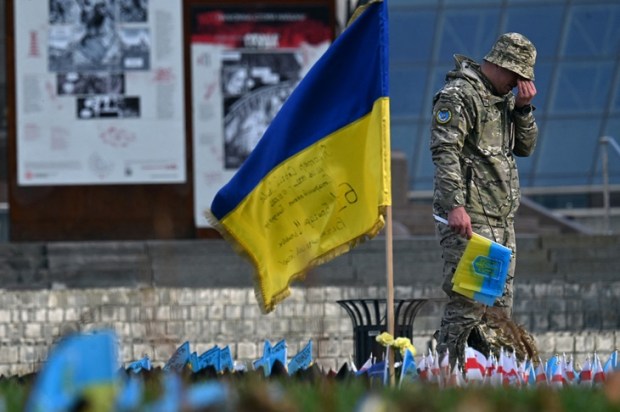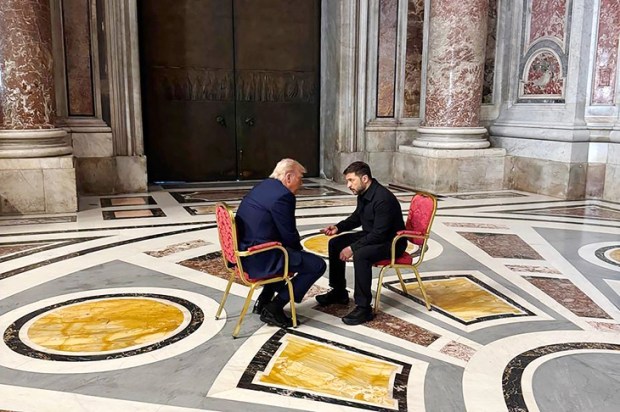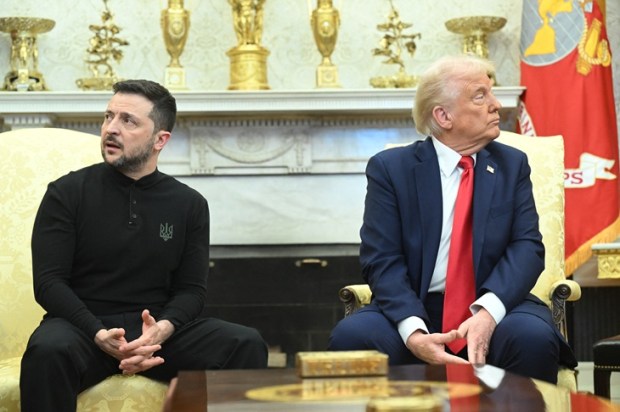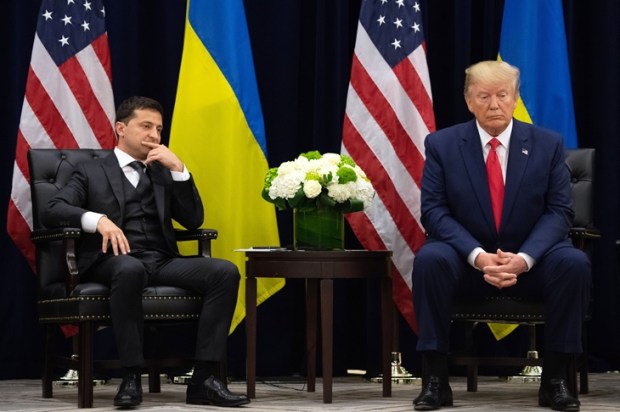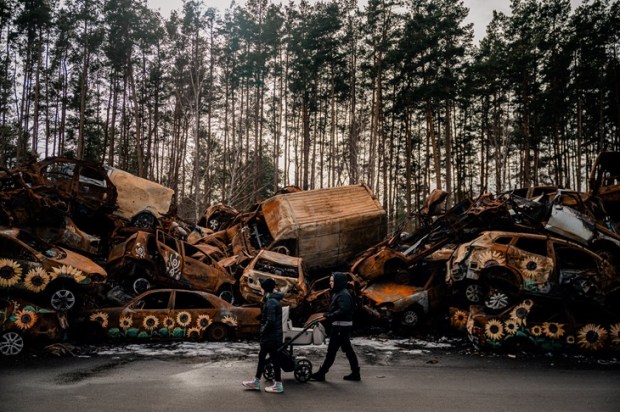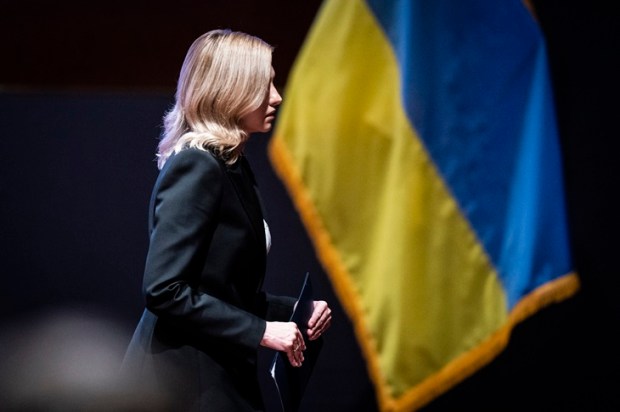Australia is about as far away from the war on Ukraine as one can get, but this week it showed how the West in general is at risk of moving even further from Ukraine.
Namely, the Australian Open… As one of the four Grand Slam events of tennis and the traditional beginning of the international tennis season, the tournament botched its handling of the social implications of Russia’s full-scale invasion. The Australian Open:
- allowed Russian players to compete whereas Wimbledon and other major sporting events have not;
- held a slickly produced and televised PR event before the tournament to show how seemingly committed to ‘peace in Ukraine’ it is;
- said Russian players can’t compete under Russia’s flag – and then allowed Vatnik supporters to bring Russian flags to a match where Ukraine’s Kateryna Kozlova-Baindl was playing, and;
- after representations by Ukraine’s Ambassador and diaspora organisations, and a media storm, was forced to ban spectators from bringing Russian flags.
Nowhere along that ridiculous route did Tennis Australia – the body that runs the tournament – do anything to condemn the causes or reasons for the war. Nor did it require or ask Russian players to state their position on the war. Nor, even after Sochi and Russian athletes being widely banned for doping, has Tennis Australia shown the slightest sign of recognising that sport is part of Putin’s hybrid war.
At the heart of the mismanagement of the situation by Tennis Australia are broader troubling tendencies in Western liberal democratic countries that risk Ukraine’s future prospects of victory, including the flow of military aid.
The first tendency can be called ‘situation normal’. Under this tendency, many leaders of politics, business, and the media frame Russia’s ongoing attack on Ukraine as somehow inevitable ‘yet another war in a violent world’, and something to be addressed from the perspective of reducing risk to themselves (rather than to Ukrainians). While the war’s human impact is tragic in their minds, and Ukraine is the wronged party, the war is somehow ‘normal’ in their broader worldview. This too shall pass.
Take a look at the statement issued by Tennis Australia on banning Russian and Belarusian spectator flags:
Flags from Russia and Belarus are banned onsite at the Australian Open. Our initial policy was that fans could bring them in but could not use them to cause disruption. Yesterday we had an incident where a flag was placed courtside. The ban is effective immediately.
We will continue to work with the players and our fans to ensure the best possible environment to enjoy the tennis.
It feels like reputational risk management instead of a recognition of either the stakes involved or of the potential impact on the Ukrainian player who was targeted – and who is from Mykolayiv which hasn’t had water for months, and where both houses and hospitals have been intentionally bombed. At this point in time, after dozens of war crimes and the killing of 40 plus people in a Dnipro apartment building just this week, it’s actually inhumane not to see the horror and the harm that the Russian flag and its regime represent.
There have been similar approaches across the West. These lack a of recognition that the situation Ukraine is subjected to which is unprecedented in modern history; that genocide and colonisation are Russia’s goals; that the West’s very values are at stake, and; that very hard choices have to be made or many more people will needlessly die.
Instead, some of the Western elite prefer softer choices. This often means going through the motions with spin and lame symbolic gestures. It’s as if you say ‘peace’ in every utterance, it absolves you from taking a genuine stand on the war.
As Marta Kostyuk, one of the rising young Ukrainian stars at the Australian Open, said in wisdom beyond her years: ‘Because people say they don’t want war, it makes us (Ukraine) sound like we want war. Obviously, we don’t want the war, too.’
Indeed, at this point in time, Russian-based invocations of ‘peace’ are sinister cover for continued destruction and violence. Kostyuk went on to rightly call on the Women’s Tennis Association to suspend Russian and Belarusian players until those players publicly call out Russia and their actions.
The second tendency is related: ‘mediocre managerialism’. In this mindset, Ukraine is something to be ‘managed’ – be it in terms of politics, business or the media. That means doing the minimum required to meet stakeholders’ expectations. Some weapons here, some statements there, some visits, some bans on flags. Again, the driver here is not the interests of Ukraine or the protection of Ukrainians or the survival of Western values, but doing the required minimum to say and show that you’re ‘doing something’. Tick-a-box tokenism that costs Ukrainian lives. A tendency that is very much in evidence in terms of Germany’s ‘lost Leopards’.
In fact, this managerialism is the polar opposite of leadership. In this situation, leadership requires:
- knowing the end point or goal to pursue;
- genuinely partnering and listening to the affected party – Ukraine;
- invoking the democratic values that the West is founded on, and;
- recognising the sacrifice that victory requires.
Sadly, some in the West are so accustomed to ‘managing’ rather than leading that they can’t wear the t-shirt that says ‘Be Brave Like Ukraine’. Johnson led. Who of the Western leaders leads like him? Or like Ukraine’s President, military commanders, train drivers, hospital nurses, and energy workers?
Hannah Arendt spoke of the ‘banality of evil’ in relation to Nazi Germany. In Putin’s Russia, in light of instances like a tennis tournament on the other side of the planet, there are today some strategists who are happy that their war is being normalised. They are even more pleased at another example of how some in the West lack the clarity of vision and moral courage to do what it takes: recognise the war’s abnormality and then truly support the Ukrainians in eviscerating their enemy for the West’s own good.
Originally published in the Kyiv Post here.


